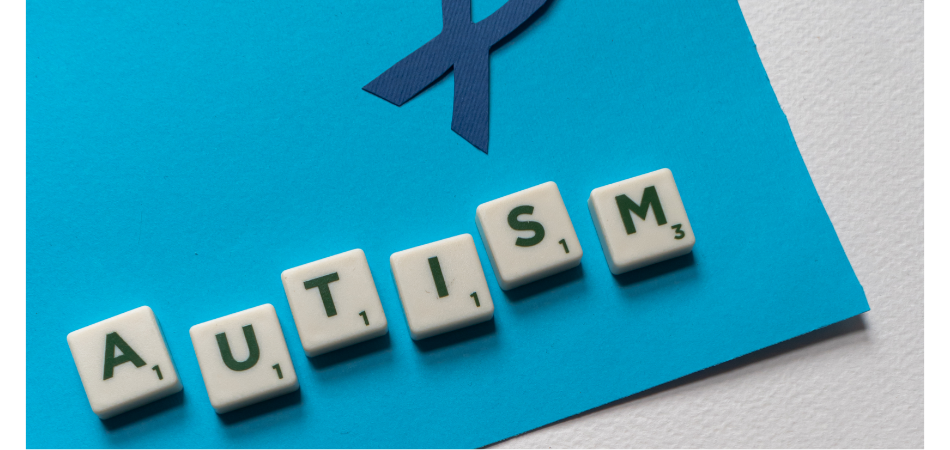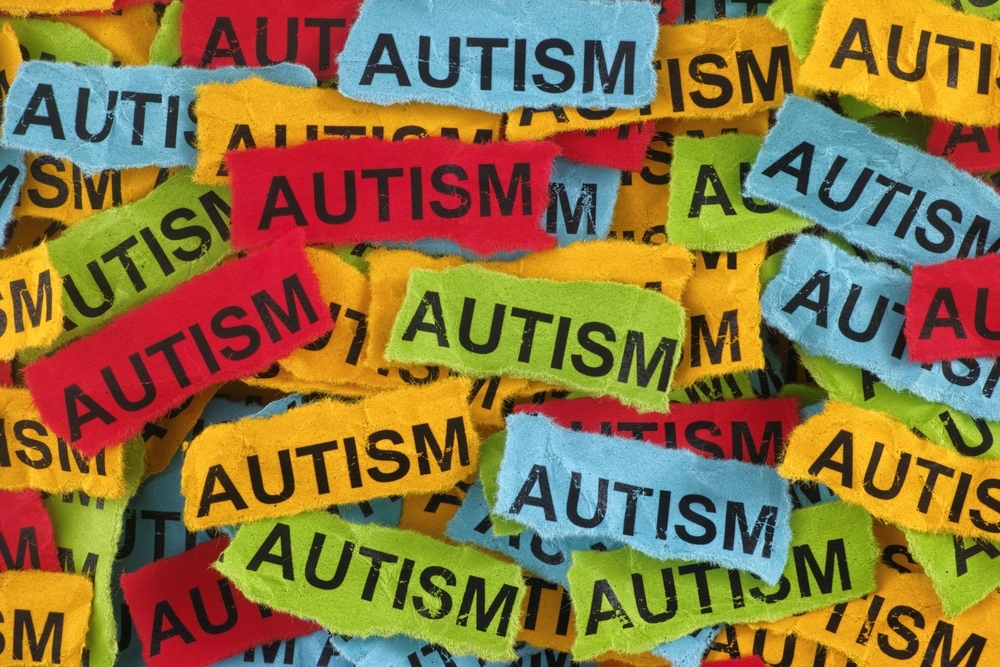Last Updated:
April 10th, 2025
Autism and Addiction | Links, Symptoms and Treatment
Autism is a developmental condition that affects how a person communicates, interacts and experiences the world. Its impact varies widely: some people might struggle with social interactions, making it hard to understand social cues or maintain eye contact. Others may have intense interests or require strict routines, while others may experience sensory sensitivities where noises, lights, or textures can be overwhelming.
In more severe cases, individuals might have difficulty with verbal communication and need support with daily tasks. The spectrum is broad, meaning each person’s experience with autism is unique.
Are there different types of autism?
Autism, or Autism Spectrum Disorder (ASD), encompasses a wide range of conditions characterised by challenges with social skills, repetitive behaviours, speech and nonverbal communication. The term ‘spectrum’ reflects the vast differences in the challenges and strengths possessed by each person with autism. This means that autism isn’t a one-size-fits-all diagnosis, as it varies greatly from person to person, with each individual displaying a unique combination of symptoms and severity.
There are several types of autism, each with its own distinct characteristics:
Classic autism (Autistic Disorder)
This is what most people think of when they hear “autism.” Symptoms include:
- Significant challenges in social interactions.
- Repetitive behaviours and routines.
- Delayed language development.
- Limited interests or intense focus on specific topics.
Asperger Syndrome
Individuals with Asperger’s typically have milder symptoms of autism. Key traits include:
- Difficulty with social interactions but often without significant language delays.
- Repetitive behaviours and focused interests.
- Above-average intelligence and vocabulary.
- Difficulty understanding social cues and norms.
Pervasive Developmental Disorder-Not Otherwise Specified (PDD-NOS)
Also known as ‘atypical autism’, PDD-NOS is diagnosed when individuals display some but not all characteristics of autism. Symptoms might include:
- Challenges in social interaction and communication.
- Mild repetitive behaviours.
- Less severe and more variable symptoms than classic autism.
Childhood Disintegrative Disorder (CDD)
A rare and severe form of autism, CDD involves a significant regression in multiple areas of functioning after at least two years of normal development. Symptoms include:
- Loss of previously acquired skills (language, social, motor skills).
- Severe challenges in social interaction and communication.
- Repetitive behaviours.
What are the causes of autism?
Understanding why autism occurs is complex, and the causes are still not fully understood. Genetics are thought to play a significant role, with both rare gene changes and common genetic variations contributing to the condition.
Current research is focusing on how these genetic factors interact with the environment. For example, exposure to harmful contaminants during pregnancy might trigger genetic mutations that lead to autism. It’s also important to note that there is no link between autism and vaccines, including those with thimerosal.
Environmental factors that may be associated with autism include older parental age at conception, prenatal exposure to air pollution or certain pesticides, maternal obesity, diabetes or immune system disorders, extreme prematurity, very low birth weight and birth complications that cause oxygen deprivation to the baby’s brain.
Is there a link between autism and addiction?
According to some researchers, Autism Spectrum Disorder (ASD) and co-occurring Substance Use Disorder (SUD) have been largely overlooked in research. However, recent studies have looked more closely at the two.
Research shows that the prevalence of SUD in individuals with ASD can range from as low as 0.7% to as high as 36%, depending on various factors. While earlier studies suggested that people with ASD had lower rates of SUD compared to the general population, new findings tell a different story.
A recent Swedish study involving over 26,000 participants found a surprisingly high rate of substance use-related issues among those with ASD. This study took a broader view, including criminal offences related to substance use, deaths caused by substances and alcohol-related health problems. It revealed that people with ASD are nearly twice as likely to face substance use problems compared to those without ASD.
Contrary to the previous belief that ASD might protect against SUD due to limited social interactions and activities, this new research suggests that ASD actually increases the risk of developing substance use-related problems.
Understanding these nuances is crucial for developing effective, tailored interventions for individuals with ASD who struggle with substance use.
What happens if I have autism and an addiction?
Treating addiction in people with autism can be particularly challenging due to the complex nature of co-existing mental health and addiction disorders. At Linwood House, we have extensive experience in successfully treating addiction and providing extra support for those with dual-diagnosis conditions, including autism.
Before starting your journey at Linwood House, it’s important to speak with your GP about managing your autism symptoms. This might involve medication, therapy, or other interventions to help you cope better with the challenges associated with autism. Once your autism symptoms are more manageable, you can begin the rehabilitation process with us.
With your autism symptoms under control, you’ll be ready to start your rehabilitation at Linwood House, where our compassionate team will be with you every step of the way.
How is autism and addiction treated at Linwood House?
Once you enrol in our programme, you will first go through the initial assessment stage, which will determine the severity of your addiction and give our team a chance to understand how autism affects you personally.
Next, if required, you will undergo detox from the substance you are addicted to. While many fear this stage, at Linwood House, we provide an environment designed to make this process as smooth as possible. With our dedicated team on hand 24/7, our aim is to make the detox process as comfortable for you as possible.
Following detox, you will undergo therapy carefully selected to help with addiction and potentially benefit autism symptoms. Here are a few of the therapies you can expect in our programme:
- Dialectical Behavioural Therapy (DBT): DBT helps you recognise and change unhealthy thoughts and behaviours. When tailored for autism, it addresses social and communication challenges, develops coping strategies for sensory triggers, and replaces substance use with healthier habits.
- Group therapy: Group therapy offers a supportive space for sharing experiences and practising social skills. When adapted for autism, it focuses on social communication and understanding, helping you connect with others while addressing addiction recovery needs.
- Art therapy: Art therapy allows creative expression to process emotions and develop coping skills. For those with autism and addiction, it provides an alternative way to communicate and explore sensory experiences, helping to process addiction-related emotions.
Lastly, you’ll have access to our comprehensive aftercare programme, designed to support you as you reintegrate into society. This programme acts as a safety net, offering ongoing therapy sessions tailored to your needs.
These sessions will focus on relapse prevention methods and techniques, ensuring you have the tools and strategies necessary to maintain your sobriety and continue your recovery journey with confidence and support.
What are the next steps?
At Linwood House, we understand the unique challenges of autism and addiction. Our compassionate team offers tailored therapies and 24/7 support to ensure a smooth recovery journey. Don’t wait—reach out today to discover how our comprehensive treatment can help you reclaim your life. Contact Linwood House now for a brighter future.
Frequently asked questions
(Click here to see works cited)
- “Autism.” National Institute of Environmental Health Sciences, U.S. Department of Health and Human Services, www.niehs.nih.gov/health/topics/conditions/autism#. Accessed 24 June 2024.
- Walhout SJ, van Zanten J, DeFuentes-Merillas L, Sonneborn CK, Bosma M. Patients With Autism Spectrum Disorder and Co-occurring Substance Use Disorder: A Clinical Intervention Study. Subst Abuse. 2022 Apr 17;16:11782218221085599. doi: 10.1177/11782218221085599. PMID: 35465619; PMCID: PMC9019324.
- Butwicka A, Långström N, Larsson H, et al. Increased risk for substance use-related problems in autism spectrum disorders: a population-based Cohort Study. J Autism Dev Disord. 2017;47:80-89.




